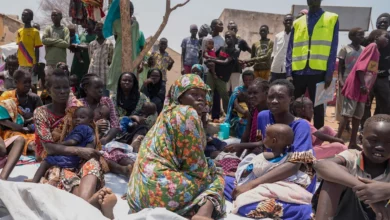
Since the introduction of the NGO Law in parliament and even before its adoption, civil society had legitimate doubts and fears that the law will completely eliminate civil work and will not help civil society achieve the goals of sustainable development, which has already happened.
The House of Representatives, when introducing and approving the law in this manner, declared that the purpose of the law is to impose government control on foreign financing transactions and the funds that enter Egypt, so as not to be squandered or used in the demolition the Egyptian state. This is an unquestioned inherent right of the state.
However, there is a big difference between controlling the funding and controlling the NGOs. The supervision of funding should be subsequent rather than preliminary; control for improvement and development, not control for making accusations and obstruction; developmental control, not security control.
At the recent World Youth Forum, President Abdel Fattah al-Sisi called on the concerned parties to reconsider the law and hold a community dialogue about it.
In order for the law to come out in a balanced and encouraging way for civil work, both domestic and international, we must take into account rebuilding the trust between the government and the civil society that has been jeopardized because of the law.
The law should differentiate between organizations and institutions receiving foreign funding under the supervision and consent of the government on the one hand and companies and bodies that are not subject to the Ministry of Social Solidarity’s supervision on the other, while other sectors and ministries have only a tax relationship with the government.
In order for the law to come out in a balanced manner, it should eliminate the phobia of skepticism and mistrust that targets many working in civil society, which is then used by some media as a pretext to attack anyone who disagrees with the policies of the government.
The foreign funding received by civil society organizations is the result of the taxpayers of the developed countries and is being paid to the developing countries for the purpose of assisting them in the developmental and societal aspects that governments fail to provide given the difficult economic situations they are undergoing.
This funding is being paid under international agreements and commitments. The aim of the funding is not to destabilize or implement agendas that undermine the dignity and integrity of the developing countries, or even the rights activities and programs carried out by the Egyptian civil society, most of which aim at developing the human rights system and educating citizens about their political and civil rights.
I hope that we free ourselves from the funding phobia that could deprive the state of real development opportunities. Continuing this phobia will reduce Egypt’s share of the financing we need at present to push development, while other countries that do not believe in this phobia may benefit from it.




